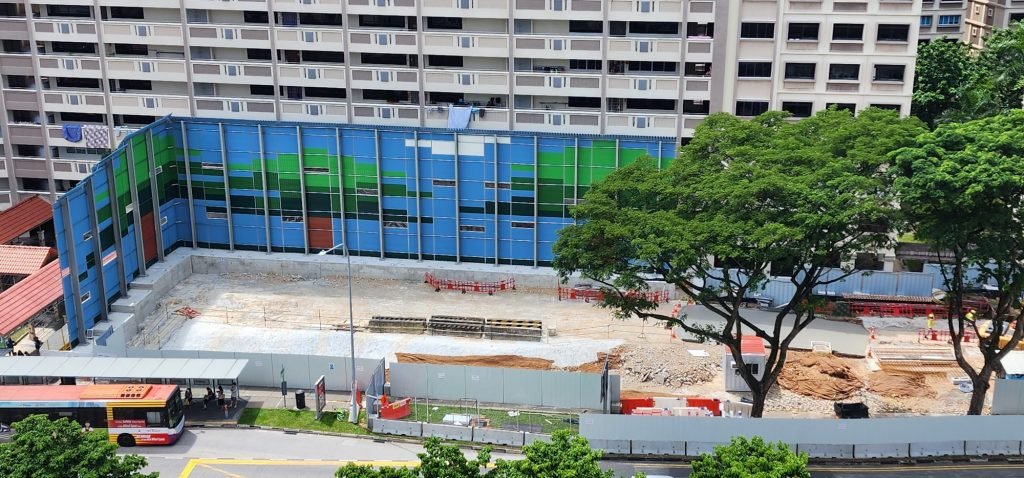
Airports are bustling hubs of activity that cater to thousands of travelers and employees every day. With all the noise generated by planes taking off and landing, as well as the general hustle and bustle of terminal operations, it’s no wonder that airports are known for being noisy places. This is where sound barriers come into play. Noise barriers are structures designed to reduce the noise levels at airports, protecting nearby communities, airport personnel, and passengers from the harmful effects of excessive noise pollution.
- Reduces noise pollution around airports.
Sound barriers are a crucial element in airport operations. They serve as a means to mitigate the impact of noise pollution on the surrounding communities. Airports are often located in densely populated areas, and their operations can generate significant noise levels that can cause disturbances to residents. Sound barriers act as a buffer between the airport and the surrounding areas, reducing noise pollution around the perimeter of the airport. This is important to maintain good relationships with local communities, as well as to comply with noise regulations set by government agencies.
In particular, sound barriers have been effective in reducing noise pollution around airports during takeoff and landing operations. By implementing sound barriers, airports can minimize the adverse effects of noise pollution on the environment and maintain a sustainable relationship with the surrounding communities.
- Benefits the health of individuals.
One of the key reasons why sound barriers are important in airports is due to the benefits they provide for the health of individuals. Airports are typically located in densely populated areas, and the constant noise from airplanes taking off and landing can have a negative impact on the health of nearby residents. Excessive noise can lead to hearing loss, stress, and sleep disturbances, which can in turn lead to a range of health problems.
By installing sound barriers, airports can reduce the amount of noise that reaches nearby communities, thereby reducing the risk of these health problems. This is particularly important for individuals who are more vulnerable to the negative effects of noise, such as children, the elderly, and individuals with pre-existing health conditions. Overall, the installation of sound barriers in airports is an important step towards protecting the health and well-being of nearby residents.
- Increases property values around airports.
Noise barriers play a significant role in airports’ overall infrastructure, as they provide numerous benefits, including an increase in property values around airports. The construction of sound barriers can reduce the impact of aircraft noise on neighboring communities by reducing the noise level that reaches residential areas, businesses, and public spaces. This, in turn, can make the surrounding areas more desirable, leading to an increase in property values.
Studies have shown that property values around airports can increase by up to 20% in areas where sound barriers have been installed. Therefore, the implementation of sound barriers can not only improve quality of life for residents but also provide economic benefits to the community.
- Improves quality of life.
The installation of sound barriers in airports has numerous benefits, including improving the quality of life for those living near the airport. Noise pollution caused by aircraft takeoffs and landings can negatively impact the health and well-being of individuals, leading to hearing loss, sleep disturbance, and stress-related illnesses. The constant exposure to loud noise can also affect children’s learning abilities and hinder their cognitive development.
Therefore, sound barriers are crucial in reducing the noise levels and mitigating the negative effects of noise pollution on nearby communities. By improving the quality of life for individuals living near airports, sound barriers can also positively impact the surrounding economy by increasing property values and attracting new businesses to the area.
- Enhances airport community relations.
Sound barriers play a critical role in mitigating noise pollution generated by aircraft at airports. The benefits are numerous, including reducing noise exposure for surrounding communities, improving the quality of life for residents, and enhancing the overall environment. One of the key advantages of sound barriers is that they can help to enhance airport community relations.
By reducing the noise generated by planes, sound barriers can reduce the number of noise complaints from residents living near airports. This, in turn, can help to foster better relationships between airports and the communities they serve. By implementing sound barriers, airports can demonstrate their commitment to being good neighbors and respecting the needs and concerns of the people who live near them.
Overall, sound barriers are an essential tool for improving airport community relations and creating a more harmonious relationship between airports and the communities they serve.
Hebei Jinbiao is a leading company in Noise Barrier products and Fencing products in Singapore. We guarantee to provide you with the most high-quality Sound Barrier and Fencing products along with our dedicated assistance. Do not hesitate to contact us. We are looking forward to helping you solve your noise issues, safety issues and protecting you from noise pollution as well as ensuring your safety.
